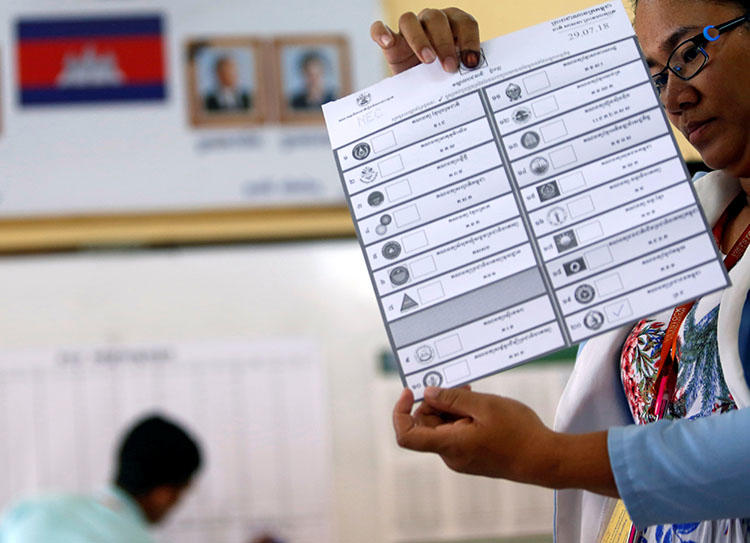Bangkok, July 30, 2018–The Committee to Protect Journalists today condemned the Cambodian government’s move to block news websites ahead of yesterday’s national elections and called for an end to the state’s censorship and harassment of the media.
The Information Ministry on July 28 ordered local internet service providers to block 17 websites–including Voice of Democracy, The Phnom Penh Post, and the U.S. Congress-funded Radio Free Asia–for 48 hours ahead of the election because their coverage was perceived as “provocative” and “very political,” according to news reports that quoted the ministry’s director general of information and broadcasting, Phos Sovann.
The block order overlapped with a 24-hour silent period that prohibits reporting on elections in the lead up to polling and which was imposed by the state’s poll organizer, the National Election Committee, according to the Qatari-funded broadcaster Al-Jazeera.
News outlets perceived as friendly to Prime Minister Hun Sen’s government remained accessible online ahead of the elections during this silent period, according to the same Al-Jazeera report.
Independent media outlets, including those whose websites were blocked, have reported critically on the democratic legitimacy of the election after the government last year banned the main opposition Cambodia National Rescue Party.
“While Cambodia masquerades as a democracy, state officials are busy censoring independent media that might shine light on the nature of its election,” said Shawn Crispin, CPJ’s Southeast Asia representative. “If Cambodia truly wants to portray to the world a functioning democracy, it must stop now its crude censorship and harassment of the media.”
The censorship around the election is consistent with a clampdown on independent media in Cambodia. In May, the National Election Committee issued a code of conduct for covering the election that barred journalists from conducting interviews at polling booths or broadcasting news that could cause “confusion and loss of confidence” in the election, according to news reports from the time.
Last year, authorities shut down several radio stations for carrying Radio Free Asia and Voice of America’s news programs beyond time allowed under their operating licenses, news reports said.
RFA shut down its in-country operations in September 2017 after coming under government pressure, CPJ research shows. Two former Radio Free Asia reporters, Uon Chhin and Yeang Socheameta, were detained in November on treason charges of providing information to a foreign state and are still being held in pre-trial detention, according to CPJ research.
The English-language newspaper, The Cambodia Daily, also shuttered its operations in September after coming under official threat of closure on tax evasion allegations. Media reports have also raised concerns about this May’s sale of The Phnom Penh Post newspaper to a businessperson with past business ties to the government.
